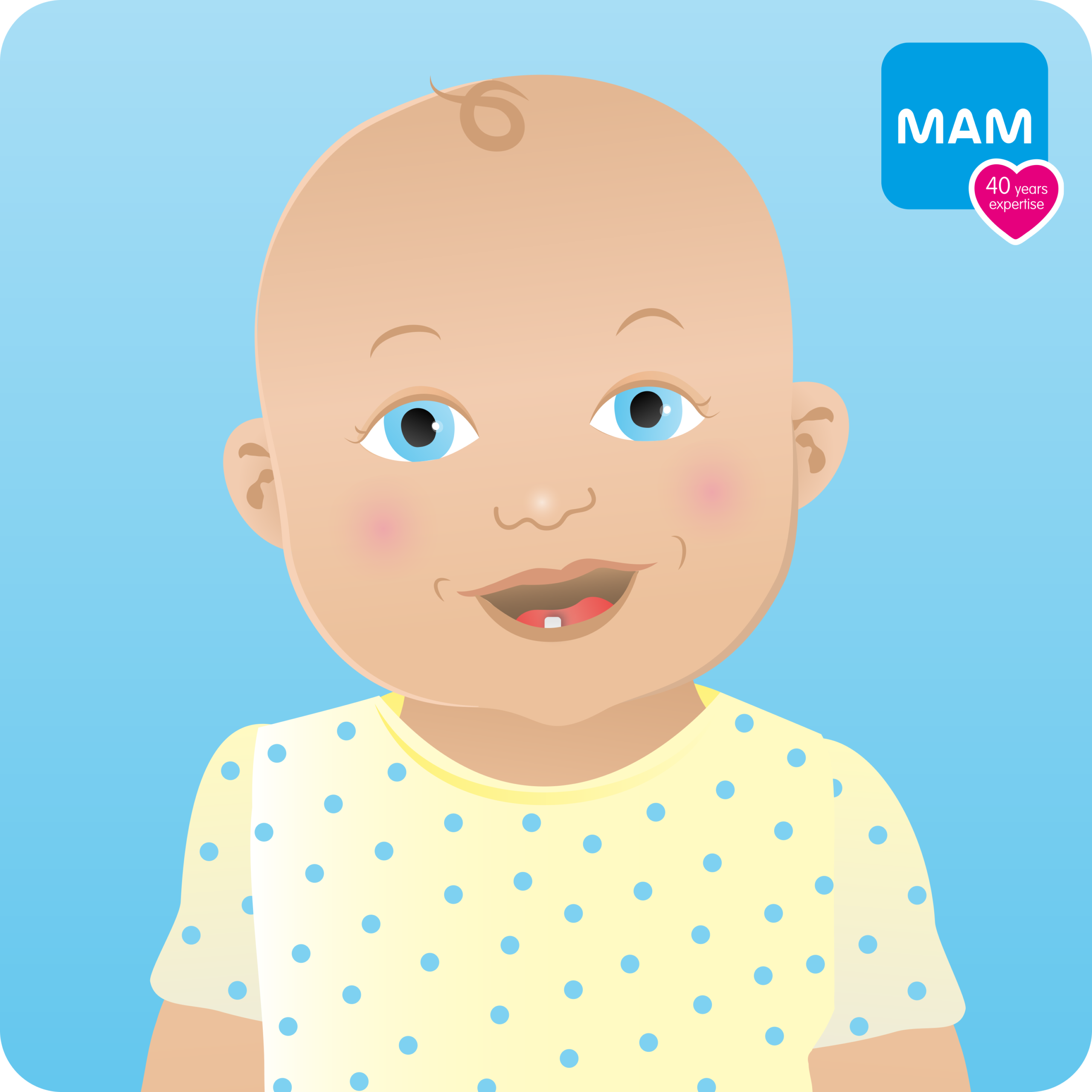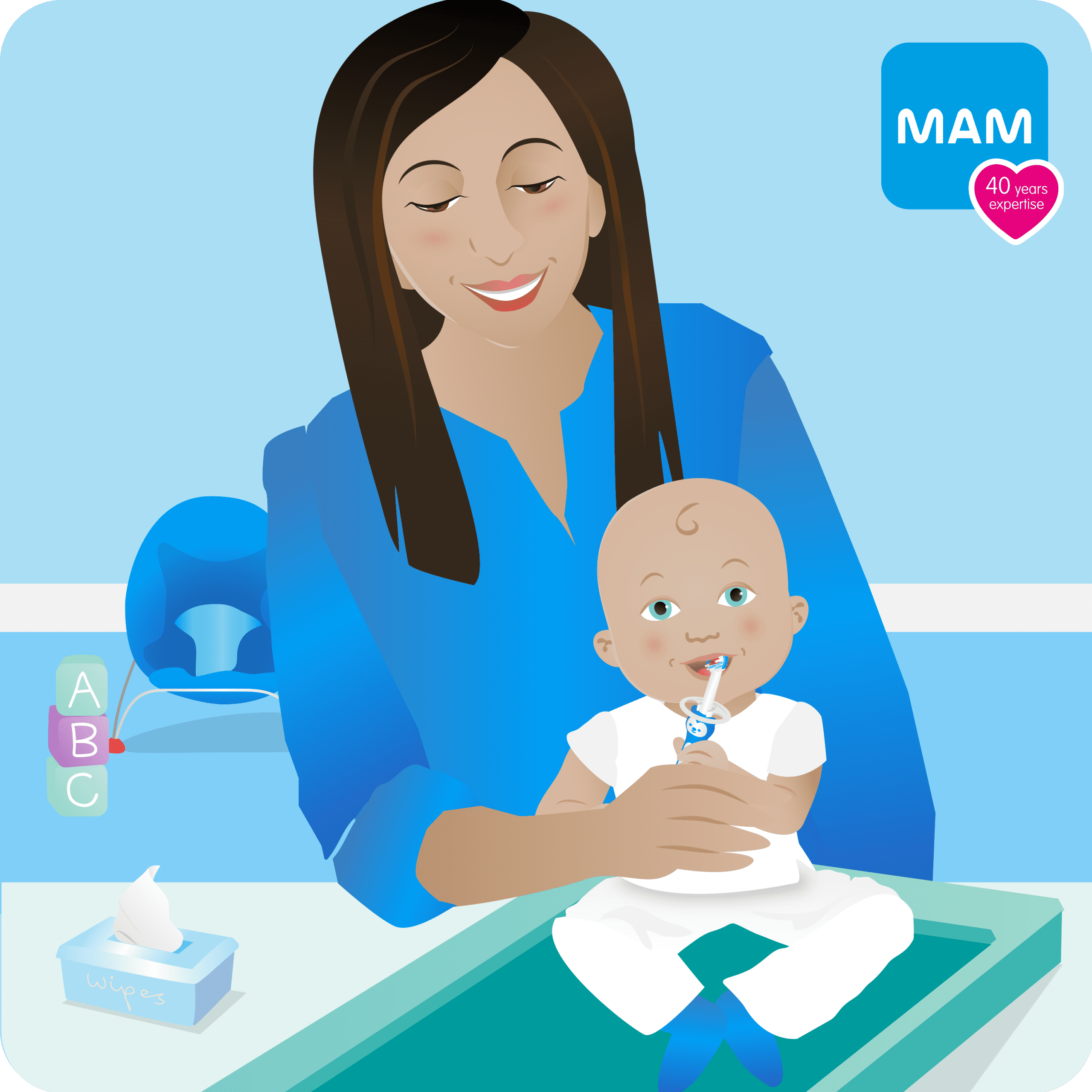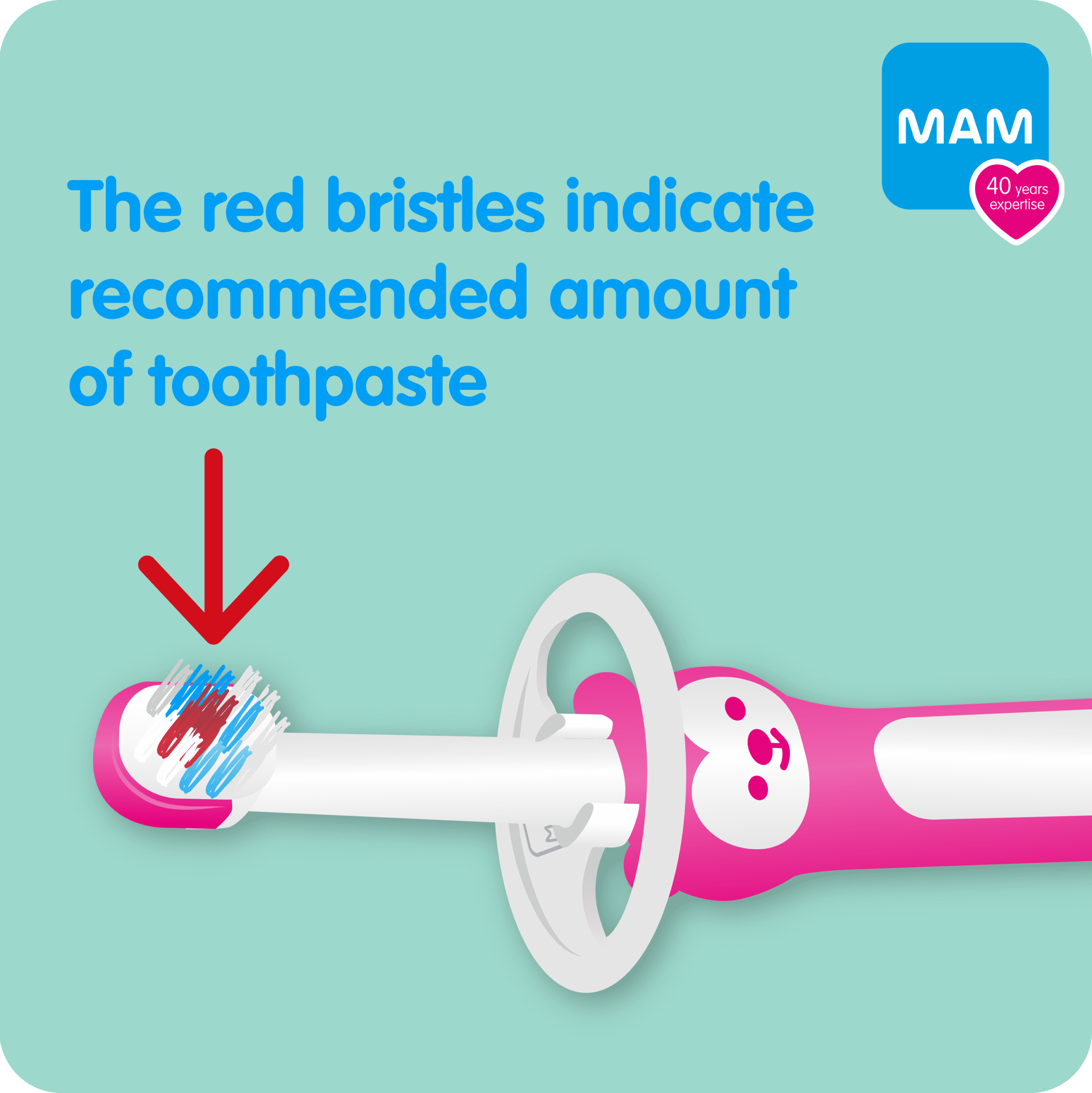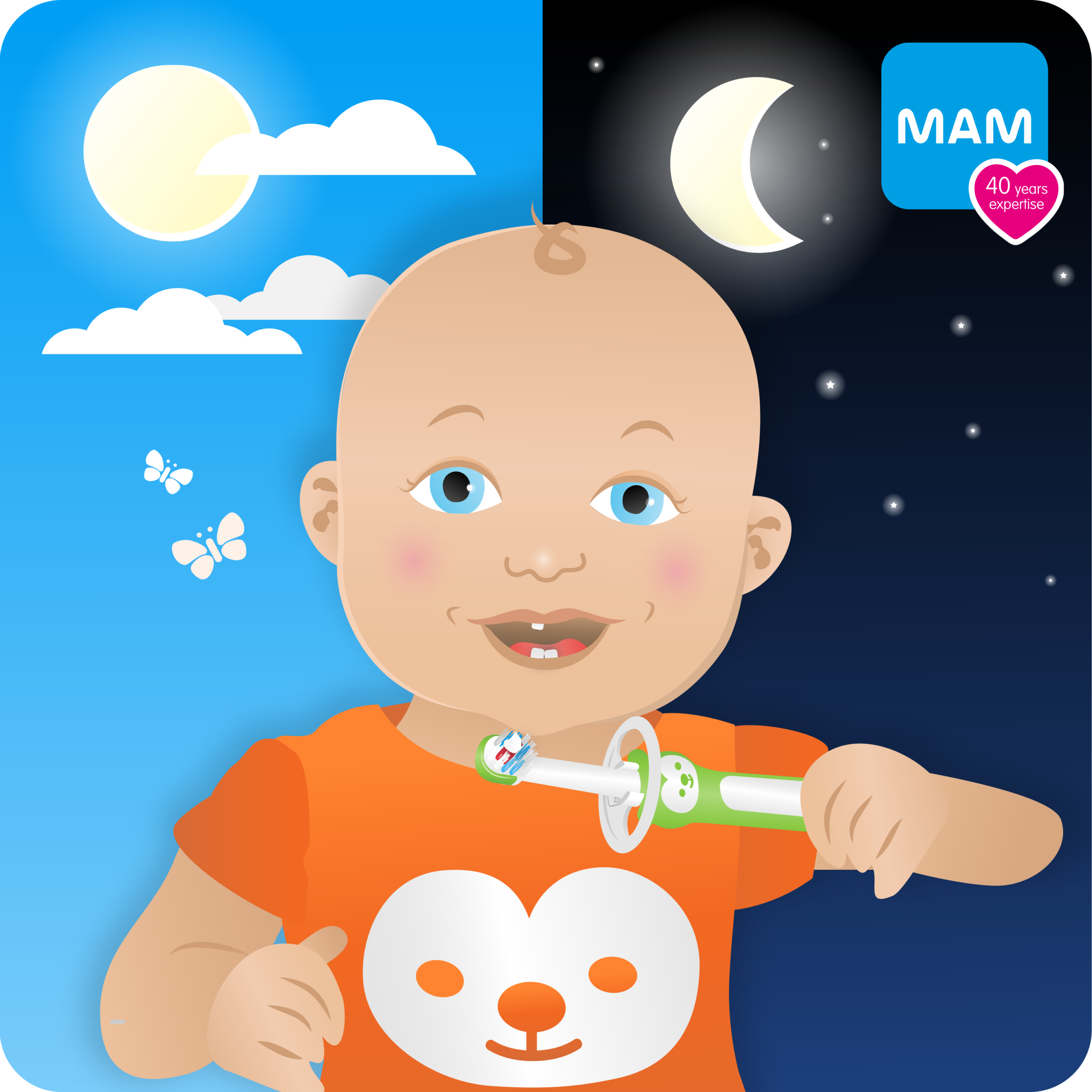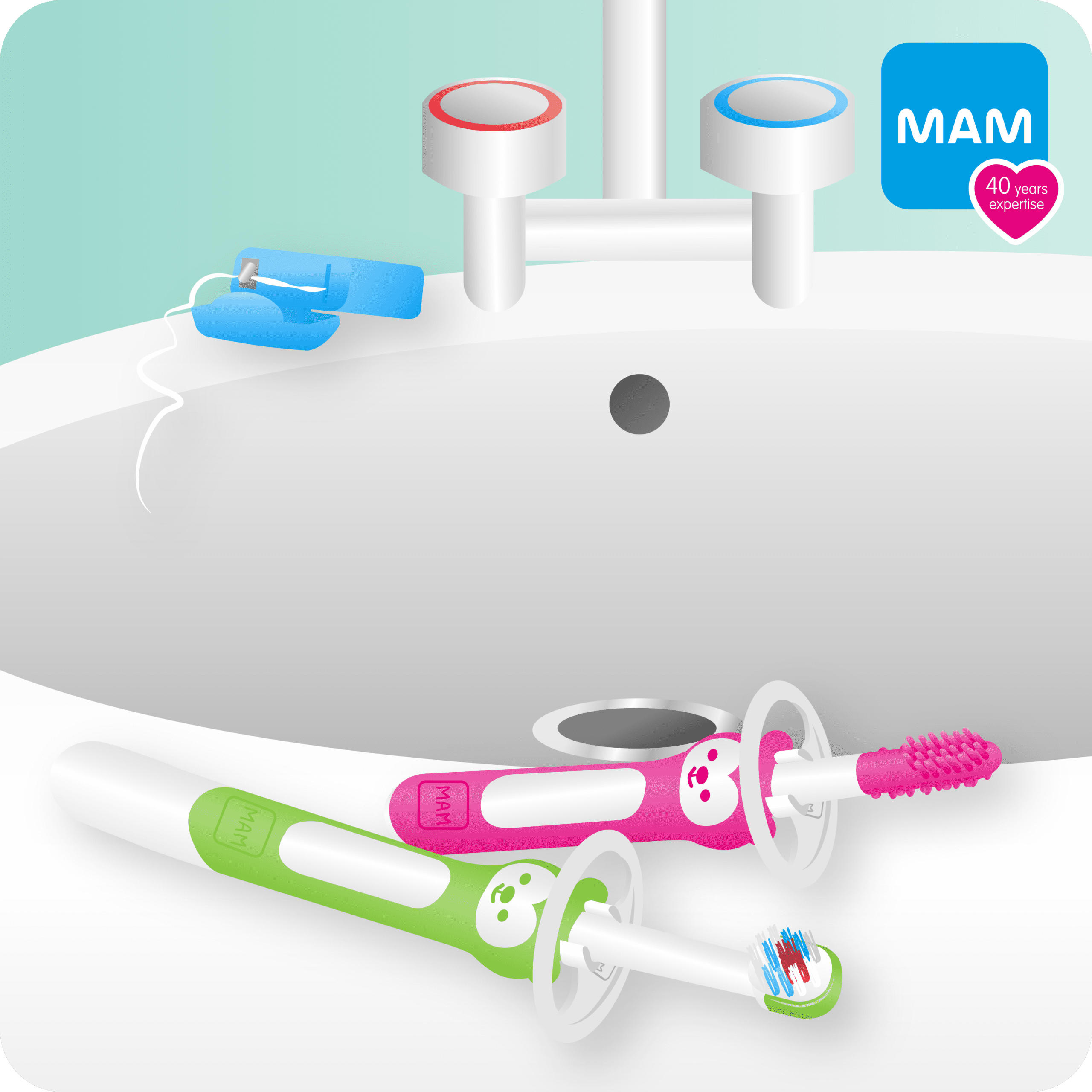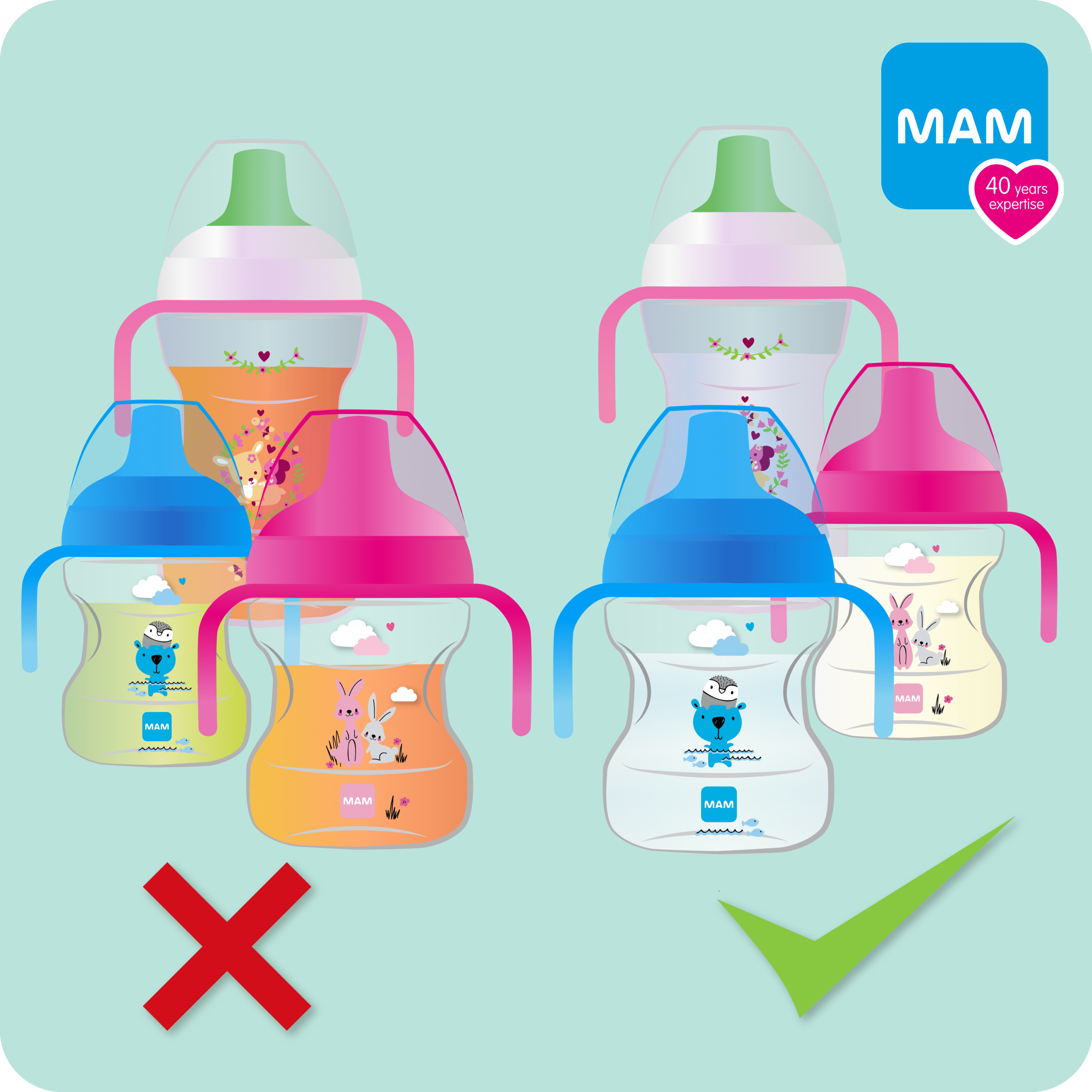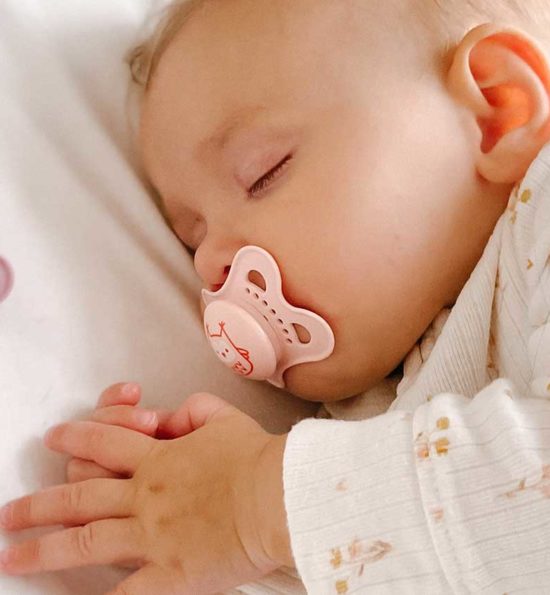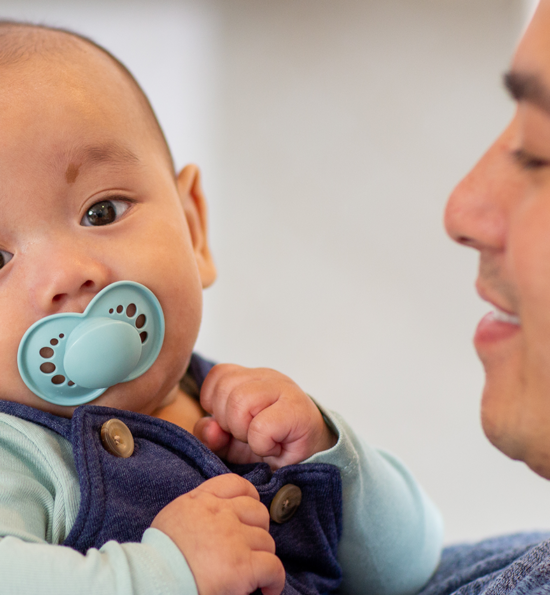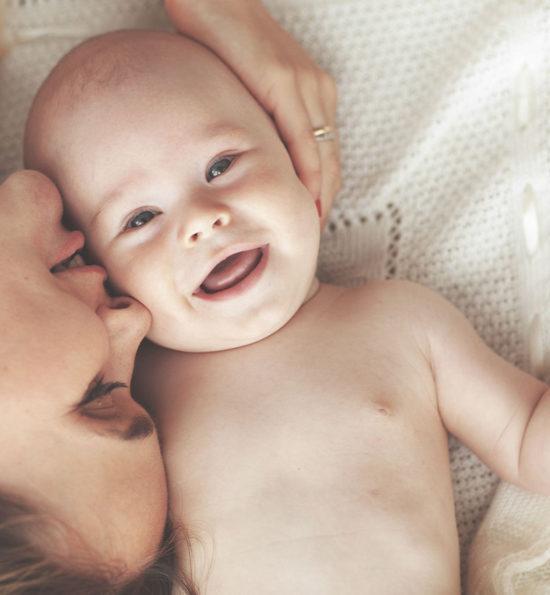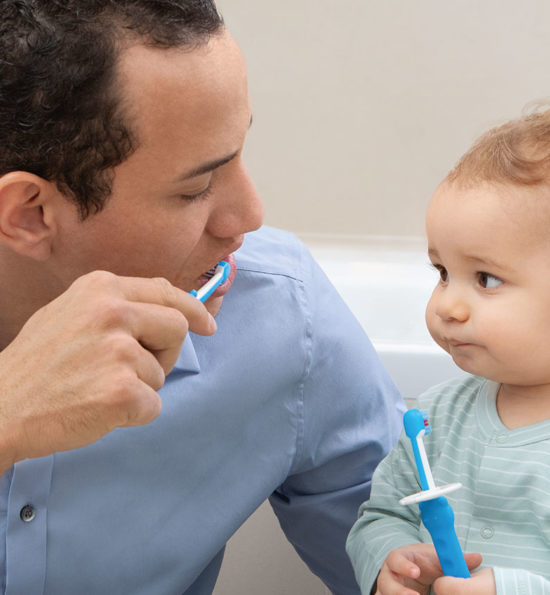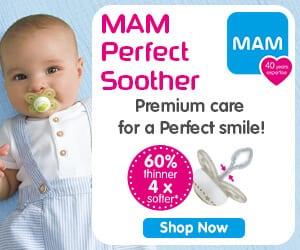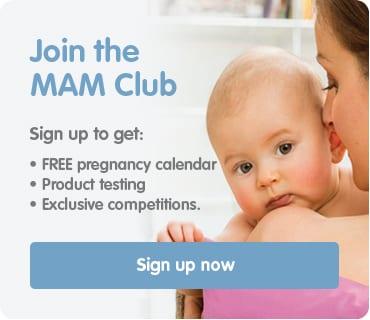Follow these top tips to keep your little one’s smile in tip top condition
Cavities are not just a problem for older children.
When should my baby visit the dentist?
It is recommended to start taking your child to the dentist from around 1 year of age or after the first tooth has started to come through. Early visits to the dentist allow them to assess how your child’s teeth are coming through. Plus, you can learn how to help take care of your little one’s teeth and they can get familiar and comfortable with the dentist. To start off on the right foot, the MAM Oral Care Rabbit helps to clean and massage baby’s mouth before the first tooth.
How to encourage brushing?
Young children don’t have the manual dexterity to do a really good job until age 7 or 8, so parents have to take an active involvement in their children’s oral health at least until then. The MAM Learn to Brush Set comes with a Training Brush, with an extra-long handle to enable parents and babies to hold the brush together. The Baby’s Brush allows babies to imitate adult brushing independently.
How much toothpaste to use?
Be careful when measuring out toothpaste to prevent your little one from accidentally ingesting fluoride toothpaste in large amounts. Parents should stick with a smear of toothpaste for kids under 2, a rice sized amount for kids aged 2-5 years and a pea sized amount for children over 5.
How often should we brush?
Don’t skip this dental health basic. You should brush your baby’s teeth, every evening after eating and for children from two years to brush their teeth in the mornings & evenings.
What about mouthwash?
Nothing substitutes for good brushing and good flossing. Mouthwash is not necessary for young children.
How to avoid tooth decay?
Bacteria in the mouth coupled with a diet high in sugar creates the perfect setting for acid to form and create tooth decay, so limit how often and how much your little one snacks or sips on sugary food and drinks.



